
Latest Coronavirus Disease COVID 19 News and Research
Public immunity to COVID-19 is probably higher than shown by antibody tests
New research from Karolinska Institutet and Karolinska University Hospital in Sweden shows that many people with mild or asymptomatic COVID-19 demonstrate so-called T-cell-mediated immunity to the new coronavirus, even if they have not tested positively for antibodies.
Newly identified molecules can help develop COVID-19 therapeutics
SARS-CoV-2, the coronavirus causing the global COVID-19 pandemic, uses a protein called polymerase to replicate its genome inside infected human cells.
‘More than physical health’: Gym helps 91-year-old battle isolation
Most mornings, like clockwork, you could find Art Ballard pumping iron.
Spike protein and human ACE2 binding ability shows SARS-CoV-2 viral adaptation
A new study published on the preprint server bioRxiv in June 2020 reports some important findings that could shed light on this question. As the pandemic marches on, having claimed over 500,000 lives and caused well over 10 million infections to date, the task of defining and predicting factors that predispose to infectivity across species becomes ever more critical.
Researchers search for SARS-CoV-2 fomites on an operational Italian bus
A new study reports the results of a viral detection study carried out in buses used for public transport across the final week of lockdown, as travel restrictions were being lifted step by step. This study by Italian researchers and published on the preprint server bioRxiv* in June 2020, may help to understand how a virus can spread within a city bus during normal operation and how effective are the measures used to protect against such transmission.
Identification of SARS-CoV-2 RNA in healthcare HVAC units
Now, a new study published on the preprint server medRxiv* in June 2020 reports that viral RNA has been found to occur in HVAC (Heating, Ventilation, and AC) units in healthcare facilities. However, it is not clear if this represents a possible mechanism of viral transmission.
Modified Vaccinia Ankara-based vaccine candidate for SARS-CoV-2
Now, a new study by researchers at Emory University, the University of Texas Medical Branch and the Ragon Institute and published on the preprint server bioRxiv in June 2020 reports the development of a promising new vaccine candidate that may rapidly and effectively induce the production of neutralizing antibodies against the spike protein of the virus.
China imposes lockdowns as new coronavirus cases surge
The coronavirus disease (COVID-19) pandemic first emerged in a seafood market in Wuhan City, Hubei Province, China, in December 2019. Since then, it has spread to 188 countries and territories and infected more than 10 million people. The viral infection has so far killed more than 500,000 people worldwide.
COVID-19 survivors should be screened for PTSD, experts warn
Contracting the coronavirus disease (COVID-19), caused by the severe acute respiratory syndrome coronavirus 2 (SARS-CoV-2) can be a stressful and traumatic experience. Patients who became seriously ill with the viral infection should be screened for post-traumatic stress disorder (PTSD) due to their experiences in fighting for their lives, mental health experts recommended.
WHO says worst is yet to come as COVID-19 pandemic speeds up
The true number of global infections and deaths, caused by the severe acute respiratory syndrome coronavirus 2 (SARS-CoV-2), is likely to be significantly higher due to lack of testing. Some people are also asymptomatic, which means they had no symptoms of the illness.
A glycan analysis of SARS-CoV-2 ACE2 complex
Researchers in the U.S. have produced molecular dynamic simulations of the Spike protein found on severe acute respiratory syndrome coronavirus 2 (SARS-CoV-2) and its interaction with the host cell receptor angiotensin-converting enzyme 2 (ACE2).
Stanford's Nobel Laureate develops a prediction model for SARS-CoV-2
The researchers from Stanford School of Medicine and ShangaiTech University show that the growth of a coronavirus disease (COVID-19) outbreak does not behave in accordance with an exponential growth law, but instead slows down exponentially with time from the very first days. Their thought-provoking findings can be currently found in the medRxiv* preprint server.
SARS-CoV-2 circulating in Italy in December 2019
Researchers at the Istituto Superiore di Sanità (Italian National Institute of Health) have shown that severe acute respiratory syndrome coronavirus 2 (SARS-CoV-2) had already been circulating in Italy many weeks before the first autochthonous (native) case was documented on February 21st this year.
New method for analyzing intact tumor samples to be used for studying COVID-19
Researchers at Karolinska Institutet in Sweden have developed a new method for analyzing intact tumor samples in 3D on a molecular level.
NUS researchers develop portable COVID-19 micro-PCR diagnostic system
COVID-19 screening can soon be conducted directly at various testing stations, and patients can get their test results in about an hour from the time they get a nasal swab.
Clinically approved drugs could disrupt SARS-CoV-2 from hijacking cells
An international team of researchers has analyzed how SARS-CoV-2, the virus that causes COVID-19, hijacks the proteins in its target cells.
California prisons are COVID hotbeds despite billions spent on inmate health
From Corcoran and Avenal state prisons in the arid Central Valley to historical San Quentin on the San Francisco Bay, California prisons have emerged as raging COVID-19 hot spots, even as the state annually spends more on inmate health care than other big states spend on their entire prison systems.
In Arizona race, McSally makes health care pledge at odds with track record
Trailing Democratic challenger Mark Kelly in one of the country's most hotly contested Senate races, Arizona Sen. Martha McSally is seeking to tie herself to an issue with across-the-aisle appeal: insurance protections for people with preexisting health conditions.
Conflicting COVID messages create cloud of confusion around public health and prevention
Regina Fargis didn't know what to do. Fargis runs Summit Hills — a health and retirement community in Spartanburg, South Carolina, that offers skilled nursing, activities and communal meals for its residents, most of whom are over 60, the highest-risk category for coronavirus complications.
Scientists use machine learning to track and predict COVID-19
As parts of the U.S. tentatively reopen amid the COVID-19 pandemic, the nation's long-term health continues to depend on tracking the virus and predicting where it might surge next.


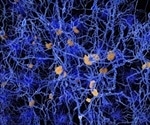
_8869a5cade084a5d8bba7fe3bbf14964-150x125.jpg)
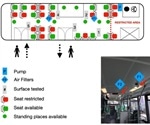

_4262f70e694e44aeb9106a4bc4589731-150x125.jpg)


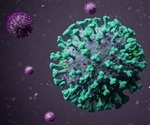
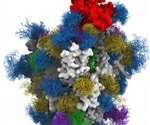
_6c67e451623b41b89650a7a313eb76ee-150x125.jpg)
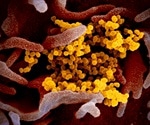



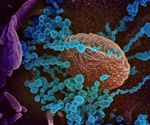
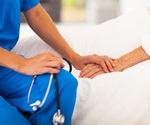
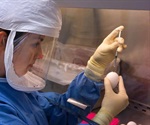

































No hay comentarios:
Publicar un comentario